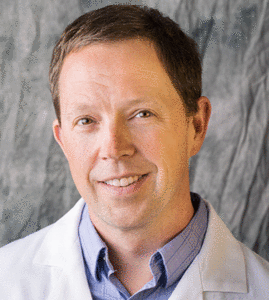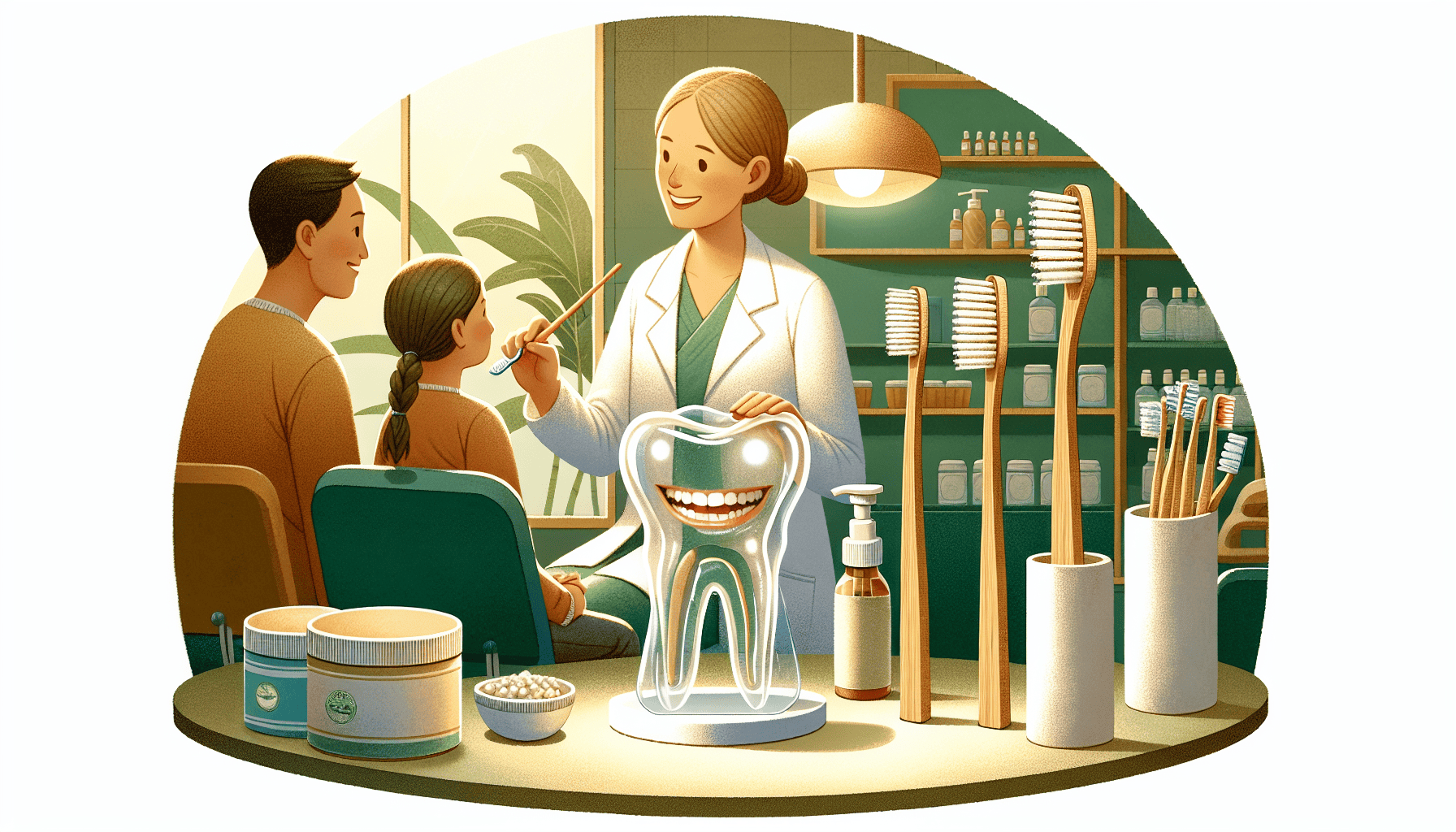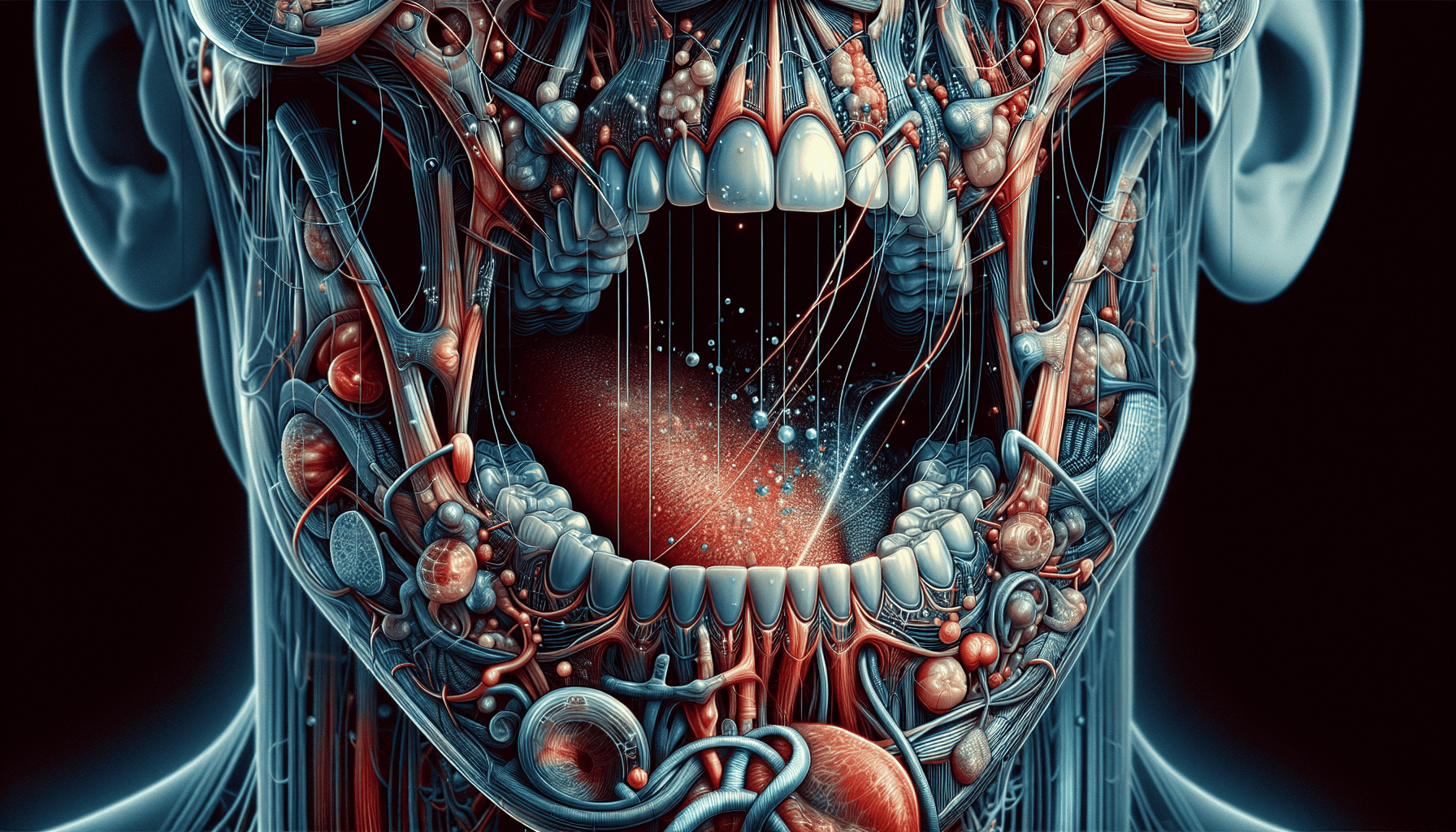
Choosing a holistic dentist means selecting a provider who integrates your oral health with your overall wellness. By using non-toxic materials and focusing on whole-body health, holistic dentists offer a distinctive approach to dental care. In this article, learn what sets holistic dentistry apart and how to locate a qualified professional tailored to your health needs.
Key Takeaways about Holistic Dentistry
- Holistic dentistry focuses on the total well-being of patients by addressing dental problems’ origins and integrating biocompatible materials, eschewing harmful substances like mercury, and employing a combination of modern dental techniques and traditional healing remedies.
- Holistic dentists prioritize preventive care and education, use natural treatments and remedies, and tackle the root causes of dental problems, including aspects beyond the dental scope such as nutrition and broader health issues.
- Qualified holistic dentists offer services like safe removal of amalgam fillings, ozone therapy, and zirconia dental implants, holistic root canal removal taking into account biocompatibility and patient health, and are capable of performing conventional treatments when necessary.
- Holistic Root canals and holistic dental implants are offered.
How Holistic Dentistry is Different Video
Who is Maryland Holistic Dentist?

Meet Dr. Gary Adams
What is Holistic Dentistry?
Holistic dentistry, otherwise referred to as biological dentistry, encompasses a dental practice that takes into account your entire well-being—physical, emotional, and spiritual—during your dental treatment. Instead of viewing the mouth as an isolated area, holistic dentists see it as one part of a larger, interconnected system. Their objective is to address dental problems at their origins, fostering overall wellness instead of solely addressing symptoms.
This entails utilizing biocompatible materials and eschewing potentially harmful substances such as mercury, commonly found in traditional amalgam fillings, to protect patient health. Holistic dentistry integrates modern techniques and traditional healing methods, basing its practices on credible scientific evidence.

0af3ac75 e0ac 46c2 958e d8876ce034a3
Principles of Holistic Dentistry
At the heart of holistic dentistry are a few key principles. Holistic dentists employ methods supported by scientific research along with practices based on anecdotal evidence. Their attention is on the entire individual, rather than solely the mouth, making sure that any treatment given aligns with the patient’s comprehensive health and wellness objectives.
This all-encompassing approach includes the materials used in treatments, concentrating on biocompatible materials that are harmless to both the body and the environment.
Conventional vs. Holistic Dentistry
Although holistic and conventional dentistry share a common foundation—as holistic dentists undergo the same basic dental education as conventional dentists—their treatment approaches diverge. Holistic dentistry expands on this fundamental knowledge, implementing the most health-conscious practices at hand.
For example, holistic dentists frequently refrain from using amalgam materials for fillings due to potential toxicity concerns, instead favoring biocompatible materials. Holistic dentists select the safest materials on the market with the fewest chemical for use in practice. For example metal-free ceramic implants instead of titanium alloy.
The Holistic Dentist’s Approach to Dental Care
Holistic dentists bring a distinctive approach to dental care. Their emphasis is on:
- Preventing oral health issues
- Educating patients on maintaining their oral health
- Identifying the root causes of dental problems rather than merely treating symptoms (why a tooth cracked along with repairing the crack).
This approach ensures more sustainable oral health.
For all-encompassing patient care, holistic dentists may propose alternative treatments for problems that extend beyond teeth and gums, such as head, jaw, and neck pain. Although not opposed to applying conventional dental techniques when suitable, holistic dentists also integrate alternative healing practices into their approach.

05f904f9 91c5 488e 93bf 9b6faabd0435
Focus on Prevention and Education
Preventive care forms the bedrock of holistic dentistry. Holistic dentists concentrate on preserving oral health and averting diseases by providing guidance on lifestyle and diet. They instruct patients on appropriate oral hygiene techniques, customizing education and routines to accommodate individual needs and foster healthy gums while preventing tooth decay.
Their priority lies in using non-toxic materials and evading potentially harmful substances such as mercury, which is found in amalgam fillings. This method motivates patients to take personal charge of their oral health, rendering them active participants in their care.
Use of Natural Treatments and Remedies
Holistic dentistry distinguishes itself by offering a broad spectrum of natural treatments and remedies, including medicinal treatments. For example, holistic dentists might use:
- Platelet rich fibrin as a bone graft material
- Turmeric for its anti-inflammatory properties
- Xylitol as a natural sweetener to prevent decay
- Tea tree oil as an antiseptic mouthwash
- Ozonated olive oil for soothing oral irritations
- Saltwater rinses for reducing inflammation
They might also recommend coconut oil pulling, an ancient Ayurvedic practice, to detoxify the mouth, reduce bacteria, and support gum health.
Furthermore, holistic dentists champion a diet abundant in fruits, vegetables, and whole foods due to its benefits for dental and overall health. These natural treatments and remedies supplement traditional methods such as brushing and flossing, providing a holistic approach to oral health.
Addressing the Root Cause of Dental Issues
An aspect of the holistic dentist’s approach is tackling the root causes of dental problems. They adopt a comprehensive approach that focuses on:
- Nutrition and broader aspects of health to prevent and treat oral health issues
- Treatments using non-toxic materials, such as composite fillings
- Refraining from using amalgam materials due to mercury concerns
- Alleviating health concerns beyond the mouth by treating conditions like temporomandibular joint disorder that may have broader health implications.
Despite their holistic approach, dentists continue to use validated diagnostic tools such as radiographs and carry out necessary dental procedures to handle specific dental problems.
Key Services Offered by Holistic Dentists
Holistic dentists provide several distinct services that differentiate them from conventional dentists. These practitioners offer:
- Composite fillings made from non-toxic materials that often do not require drilling, making the procedure less invasive
- Avoidance of mercury-containing amalgam fillings due to potential health risks
- Preference for biocompatible materials instead
Another service provided is ozone therapy, a remedy for assorted oral conditions such as tooth decay and gum disease. Holistic dentists also favor minimally invasive surgical options and might utilize systems like the Ögram SystemTM to lessen trauma during procedures.

176ed3ad 8cdc 4f7a adc6 2de10537e5eb
Dental Implants
In the field of dental implants, holistic dentists introduce a novel approach. They use zirconia dental implants, which offer:
- An aesthetic that closely mimics natural teeth due to their translucency and tooth-like color
- A single-piece system designed to promote healthier gum tissue
- Reduced inflammation and infection risks
- Easier maintenance and cleaning
Zirconia implants are not just robust and long-lasting, but also hypoallergenic and biocompatible, thus making them an apt choice for patients with sensitivities.
In certain cases zirconia implants cannot be used. For example with full mouth implant cases zirconia often cannot be used. Holistic dentist will use pure titanium instead of titanium alloy implants. And pure zirconia for the teeth on top. Holistic dentists will also be sure no other metals are in the mouth to react with the titanium.
Ozone Therapy
In relation to treating diverse oral conditions, ozone therapy takes on a substantial role in holistic dental practices. This therapy employs O3 gas known for its potent antimicrobial effects that combat bacteria, viruses, and fungi. It can be administered as either an inhaled gas, dissolved in water, or in an oil-based form to suit different treatment needs.
Ozone therapy is successfully incorporated into a variety of dental procedures, including:
- Tooth extractions
- Root canal treatments
- Managing gum disease
- Reversing early tooth decay
Its ability to re-mineralize tooth enamel and enhance the immune system fast-tracks healing, underscoring its role in holistic dental care.
Alternative Medicine in Dental Care
The integration of alternative medicine in dental care constitutes another distinguishing feature of holistic dentistry. Holistic dentists utilize non-toxic, biocompatible materials, reflecting their commitment to alternative medicine in dental care. They provide alternative treatments such as fluoride-free remineralization, safe amalgam removal, and mercury-free fillings.
These dentists concentrate on preventive care using natural treatments, combined with traditional techniques when required, to avert gum disease and cavities.
How to Find a Qualified Holistic Dentist
Locating a qualified holistic dentist may appear intimidating, but it need not be. It entails investigating holistic dental associations, assessing the dentist’s education and experience, and referencing reviews and testimonials.
Let’s explore these steps with greater detail.
Search for Holistic Dental Associations
Your quest for a holistic dentist can commence with holistic dental associations. These associations maintain databases that list qualified holistic dentists. For example, the Holistic Dental Association offers a database specifically for finding holistic dentists within the United States. You can find practitioners in your area by selecting the appropriate country category.
Upon searching, you’ll obtain contact information for available holistic dentists.
Evaluate Dental Training and Experience
Next, assess the dentist’s education and experience. A qualified holistic dentist should have attended an accredited dental school to ensure they have a solid foundation in dental medicine. In addition to their standard dental education, holistic dentists need specialized training in holistic dental practices.
This ensures that the chosen licensed dentist is proficient in the principles and practices of holistic dentistry.
Consult Reviews and Testimonials
Finally, remember to reference reviews and testimonials. This can be a crucial step for potential patients to assess the quality of holistic dentists’ practice. Reviews from previous patients often highlight the effectiveness of a holistic dentist’s treatment approaches.
Testimonials can provide insights on various aspects of the patient experience, such as staff friendliness, thoroughness of dental exams, and overall satisfaction with the treatments received from a holistic dentist.
The Connection Between Oral Health and Overall Health
Comprehending the profound connection between oral health and overall health is vital in holistic dentistry. Holistic dentists perceive dental health as a mirror of systemic health, identifying conditions like heart disease and diabetes as linked to oral health issues. Risk factors such as poor diet and stress are known to contribute to both the development of oral health conditions and systemic health issues.
There is even a genetic component that may predispose individuals to both periodontal disease and certain systemic conditions.
The Connection Between Oral Health and Overall Health
Comprehending the profound connection between oral health and overall health is vital in holistic dentistry. Holistic dentists perceive dental health as a mirror of systemic health, identifying conditions like heart disease and diabetes as linked to oral health issues. Risk factors such as poor diet and stress are known to contribute to both the development of oral health conditions and systemic health issues.
There is even a genetic component that may predispose individuals to both periodontal disease and certain systemic conditions.

ac9dbb65 4e12 4f3e abc3 a0ff91dad136
Gum Disease and Systemic Health
Periodontal disease, better known as gum disease, frequently has systemic implications. It is commonly associated with systemic conditions such as heart disease, diabetes, and stroke, with gum disease potentially increasing the risk for cardiovascular issues including coronary artery disease and endocarditis. Although establishing a direct causal link between periodontal disease and systemic health issues is complicated, there is a clear association between the two. Overlap in risk factors, such as smoking and unhealthy dietary habits, contribute to the prevalence of both periodontal diseases and systemic diseases.
Poor oral health, particularly periodontal disease, has even been linked to pregnancy complications, including the potential for premature birth.
Tooth Decay and General Health
Tooth decay is more than just a dental concern. It can have profound consequences on general health, affecting various bodily systems beyond oral health. Poor dietary habits fostered by tooth decay can lead to broader health issues including malnutrition, which in turn may increase the risk of cardiovascular disease and diabetes.
In children, tooth decay can hinder appropriate nutrition and growth, leading to serious health issues like cellulitis and substantial facial swelling.
Holistic Dentistry’s Role in Promoting Wellness
Holistic dentistry takes on a substantial role in promoting wellness. By acknowledging the deep connection between oral health and overall well-being, holistic dentistry advocates for a comprehensive approach to patient care. This holistic approach enables dentists to not just treat oral health issues, but also address the underlying causes and potential systemic implications.
Through this, holistic dentistry assumes a vital role in advocating overall wellness and preventing chronic diseases, with natural dentistry being an essential part of this approach.
Debunking Myths About Holistic Dentistry
Like any unconventional approach, holistic dentistry carries its share of misconceptions. Let’s dispel some of these misconceptions:
- Holistic dentists are capable of performing dental surgery
- They utilize evidence-based practices
- They do include conventional treatments when necessary.
Myth: Holistic Dentists Don’t Perform Dental Surgery
A prevalent myth is that holistic dentists are incapable of performing dental surgery. The truth is, licensed holistic dentists can perform dental surgeries when necessary, even though they focus primarily on prevention and alternative treatments. Their education and qualifications match those of conventional dentists, guaranteeing they possess the requisite skills and knowledge to carry out surgical procedures when necessary.
Myth: Holistic Dentistry is Unscientific
Another widespread myth is that holistic dentistry lacks scientific grounding. On the contrary, holistic dentistry employs scientifically validated methods such as safe removal of amalgam fillings. There is also research supporting the use of certain holistic practices, like the links between dental health and systemic health.
Holistic dentists:
- Receive the same fundamental training as conventional dentists, including attending accredited dental schools
- Often have additional certifications in areas such as nutritional counseling and alternative therapies
- Take an evidence-based approach, integrating the best research with clinical expertise and patient values
Myth: Holistic Dentists Don’t Use Any Conventional Treatments
The misconception that holistic dentists abstain from any conventional treatments is also prevalent. In fact, holistic dentists may employ conventional treatments in tandem with natural remedies and biocompatible materials, striving to provide a comprehensive dental care strategy.
The use of conventional medicine treatments depends on the patient’s unique needs and the nature of their dental issues.
Summary
In summary, holistic dentistry offers a unique approach to dental care that emphasizes overall health and wellness. It incorporates biocompatible materials, focuses on prevention and education, and addresses the root causes of dental issues. Contrary to some misconceptions, holistic dentists are fully qualified to perform dental surgeries and use evidence-based practices. By considering the connection between oral health and systemic health, holistic dentistry not only treats dental issues but also promotes overall wellness.
Frequently Asked Questions
Holistic dentistry, also known as biological dentistry, focuses on treating dental issues while considering the patient’s overall well-being. It aims to address dental problems at their root causes, promoting overall wellness.
Holistic dentistry differs from conventional dentistry in its prioritization of biocompatible materials and alternative treatments, while conventional dentistry uses traditional methods and materials. This can have a significant impact on the overall approach to dental care and treatment.
Holistic dentists offer a range of services including dental implants with biocompatible materials, ozone therapy for oral conditions, and alternative medicine in dental care. It’s important to consider these options for a more holistic approach to dental health.
You can find a qualified holistic dentist by searching for holistic dental associations and evaluating the dentist’s training and experience. Reading reviews and testimonials can also provide valuable insights.
Yes, there are misconceptions about holistic dentistry, such as the belief that holistic dentists don’t perform dental surgery or use any conventional treatments, but these myths are untrue.

 (301) 421 1996
(301) 421 1996 burtonsvillesmiles@gmail.com
burtonsvillesmiles@gmail.com